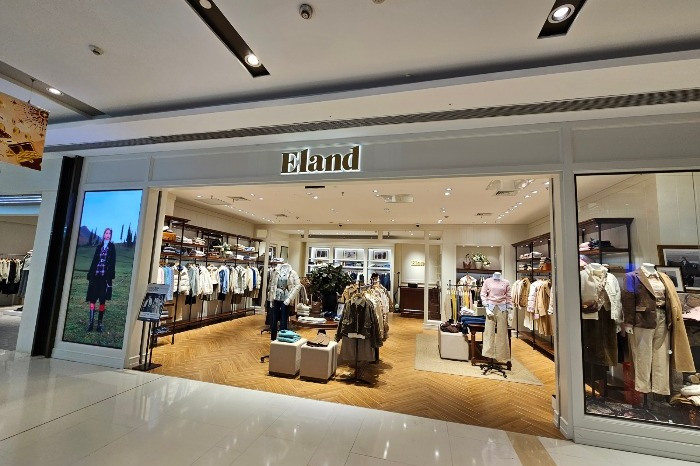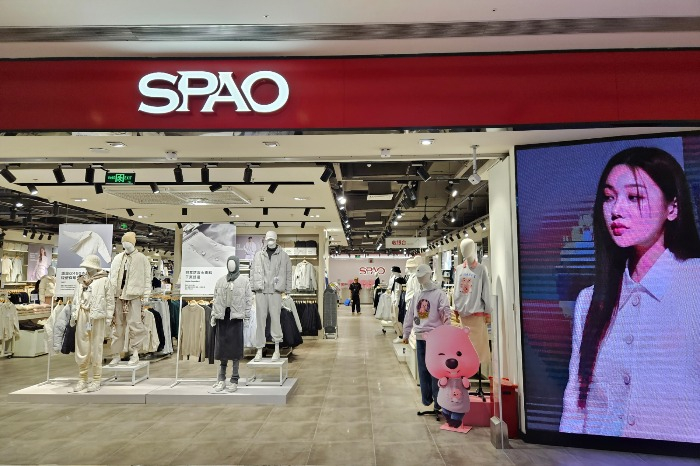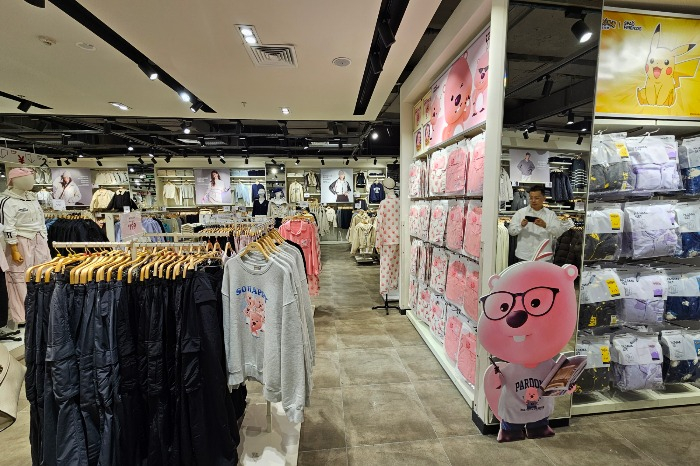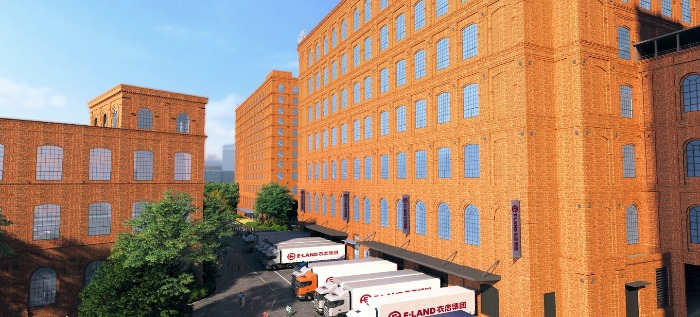Retail
E-Land eyes another leap forward in China under new strategy
It also wants to act as a bridge for Korean companies’ expansion in China
By Oct 31, 2023 (Gmt+09:00)
3
Min read
Most Read
LG Chem to sell water filter business to Glenwood PE for $692 million


KT&G eyes overseas M&A after rejecting activist fund's offer


Kyobo Life poised to buy Japan’s SBI Group-owned savings bank


StockX in merger talks with Naver’s online reseller Kream


Meritz backs half of ex-manager’s $210 mn hedge fund



SHANGHAI – E-Land World Ltd., a South Korean fashion and retail company, is gearing up for another leap forward in China, where the company’s sales are expected to surpass its domestic revenue in the coming years.
Despite a plunge in its Chinese sales over the past few years amid the anti-Korea sentiment there, E-Land has not scaled back its Chinese operations. It has instead chosen to overhaul its management strategy.
It has integrated the management of its Chinese and South Korean operations. Previously, it had separately managed its operations from product launches to advertising and store structure.
It also recently forayed into China’s high-end women’s fashion market and underwent full-scale store renovations. Those efforts appear to now be bearing fruit.
E-Land predicts its Chinese sales to jump around 20% on-year to 1.3 trillion won ($960 million) this year, although that figure would still fall short of its highest-ever results of over 2 trillion won ($1.5 billion) in the country.
By 2025, its Chinese sales could exceed its domestic sales of 1.52 trillion won as of 2022, according to the company.

INTEGRATION
SPAO, a fast fashion brand under E-Land, is decorating its Chinese stores exactly as its Korean stores this year. Its product assortments on display in the stores, advertising, mannequins, interior design, employee greeting methods and store music are all the same as in Korea.
The SPAO store in the Yangpu district of Shanghai ranked first in sales per pyeong, or 3.3 square meters, among its outlets in China after its reopening in April after renovation.
Currently, the Huanqiuwang-based SPAO store, which opened last week, posts the highest sales per pyeong.
NEW BALANCE KIDS
New Balance Kids has also contributed to E-Land’s Chinese sales
The sportswear brand, of which E-Land has secured the exclusive sales license in both Korea and China, is expected to post about 100 billion won in sales in China this year.
It aims to double sales there to 200 billion won next year, higher than the 170 billion won its South Korean operations posted in 2022.

LUXURY STRATEGY
E-Land also targets China’s high-end fashion market in line with the country's rising consumer spending.
It recently relaunched its E-Land women’s clothing brand available only in China.
E-Land plans to grow it to rival Ralph Lauren, a popular brand in China, with high-quality materials and stylish, classic designs at competitive prices.
The price of knitwear under E-Land's new brand ranges from 150,000 to 200,000 won, about 20-30% cheaper than Ralph Lauren’s, making it price competitive.
E-Land has broken away from the strategy of churning out products in large quantities. It now produces only small quantities after checking the market response and reflecting trends immediately.
It also undertook full-scale renovations of 30 stores in China, about 10% of its outlets there, this year.
“Sales at stores that have completed renewal have doubled on average,” said an E-Land official.

E-LAND INNOVATION VALLEY
Further, E-Land wants to act as a bridge for local peers’ entry into China, levering three decades of experience and networks it has built in South Korea’s largest trading partner.
It has recently completed the E-Land Innovation Valley, measuring a total floor area of 350,000 square meters, in the Wujing district of Minhang, Shanghai, to house several Chinese and Korean companies in various sectors.
It will also move its Chinese headquarters to the new facility.
Wujing, equivalent to South Korea’s Pangyo Techno Valley near Seoul, is where E-Land first settled when it entered China in 1992. E-Land had converted a doll factory in Wujing it purchased into a trousers-manufacturing factory and launched its business in China.
E-Land wants to help Korean companies without connections in China venture into the country by guaranteeing their business or debts.
E-Land may also participate and support them as their financial or strategic investor.
“We connected domestic AgTech companies to Chinese authorities to participate in a large-scale smart farm development project underway on reclaimed land north of Shanghai. The farm is 35 times the size of Yeouido, Seoul,” said the E-Land official.
AgTech is short for agricultural technology. Yeouido is a large island in central Seoul.
Write to Ji-Yoon Yang at yang@hankyung.com
Yeonhee Kim edited this article.
More to Read
-
 RetailKorean E-Land unites fast fashion units for China biz growth
RetailKorean E-Land unites fast fashion units for China biz growthApr 24, 2023 (Gmt+09:00)
2 Min read -
 Alternative investmentsE-Land sells Shanghai warehouse for $2.2 bn to lower debt ratio
Alternative investmentsE-Land sells Shanghai warehouse for $2.2 bn to lower debt ratioJan 12, 2022 (Gmt+09:00)
2 Min read
Comment 0
LOG IN


